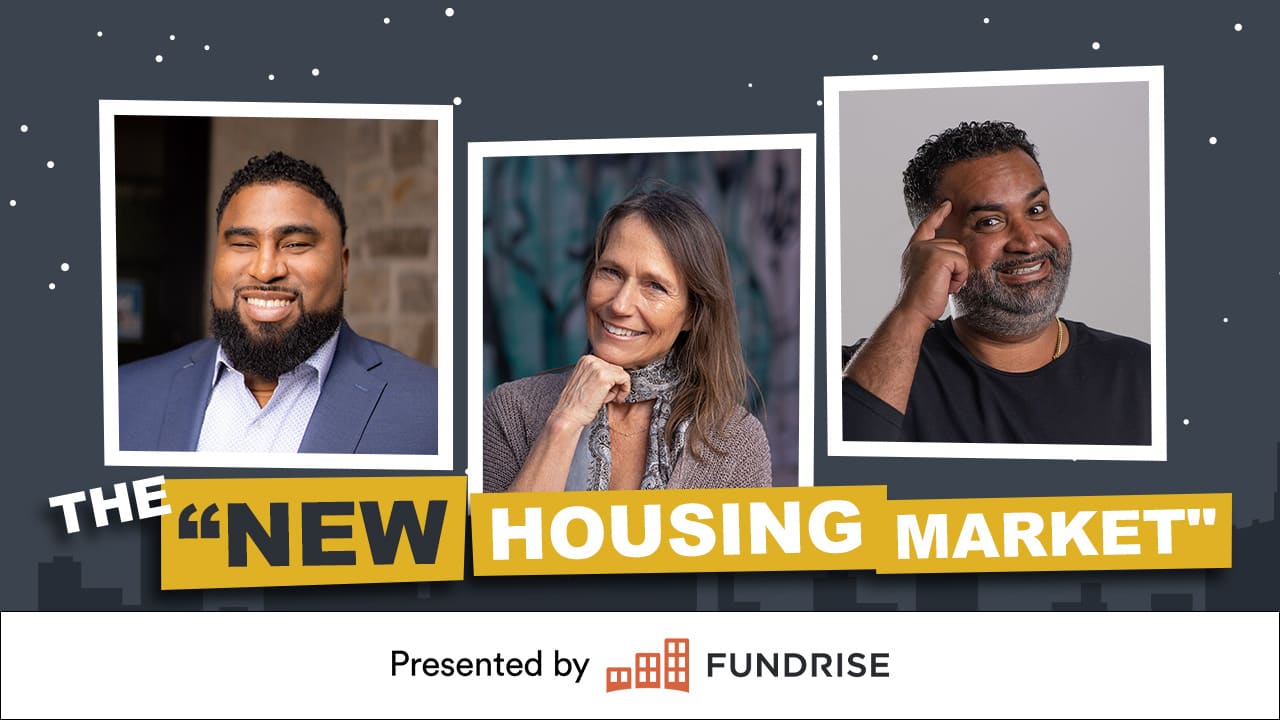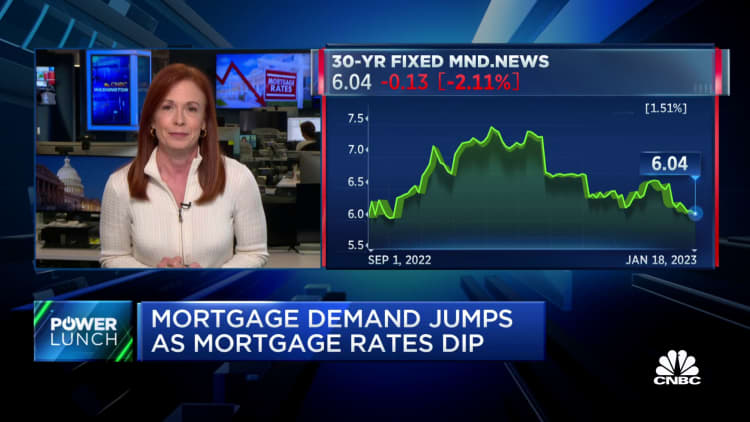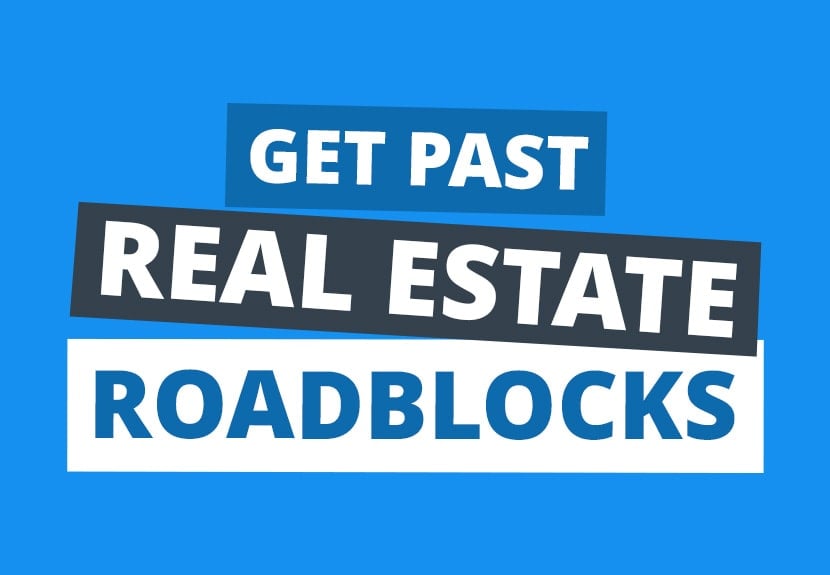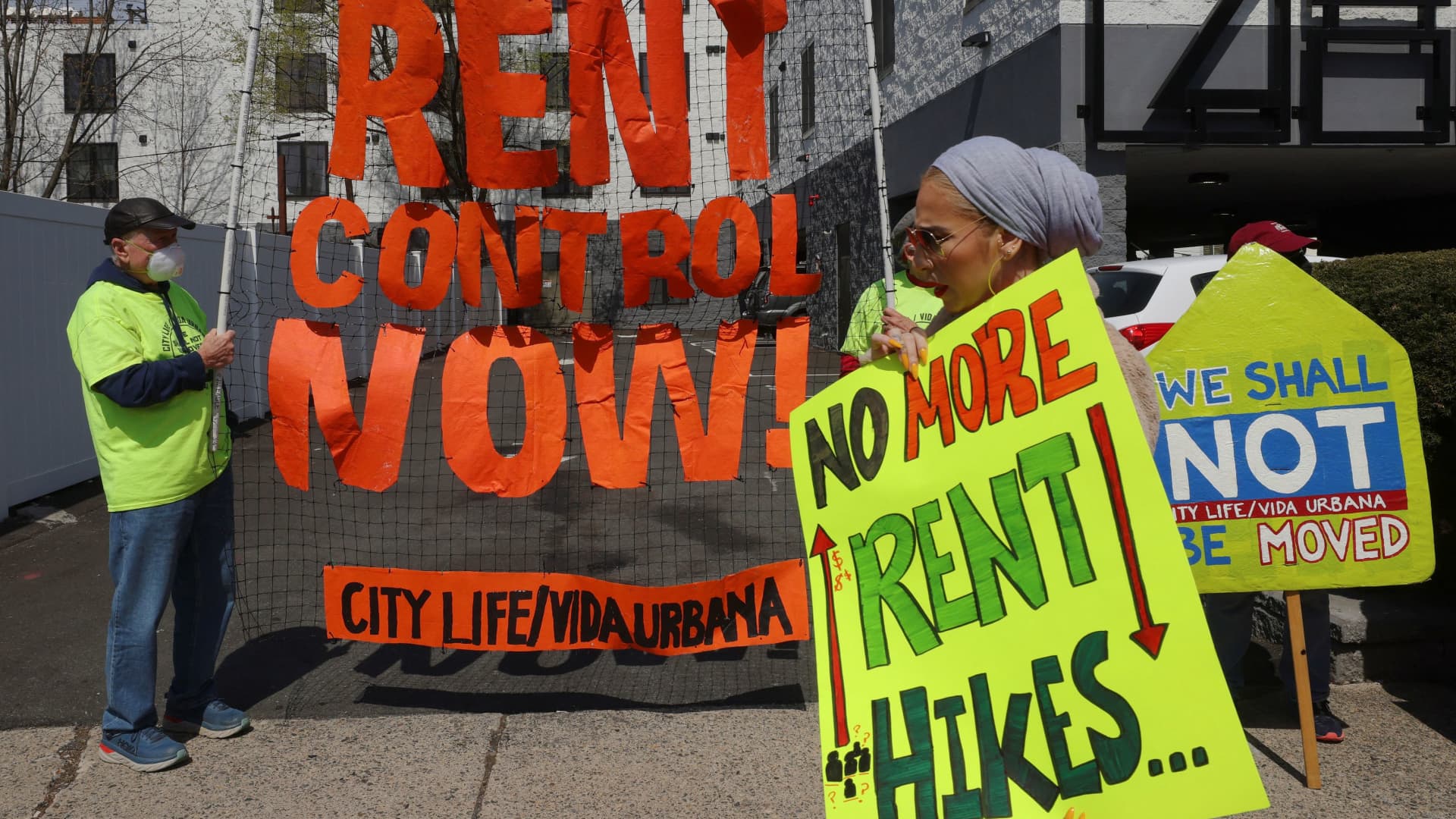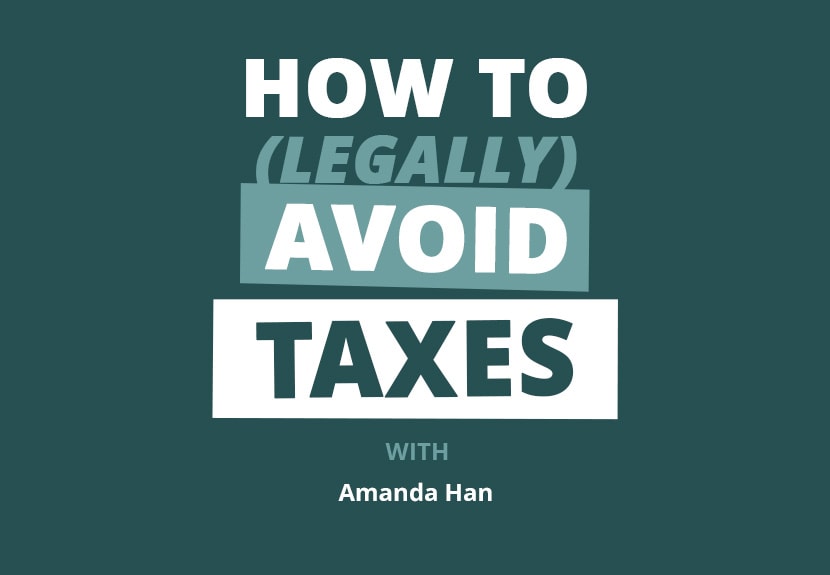Escaping the Corporate Rat Race and Property Management Q&As
Escaping the rat race at 26 isn’t easy, but Isaac Lane, Arizona-based investor and rookie landlord, is doing it through out-of-state investing! Isaac started investing only a couple of years ago, but he’s been scaling quickly as he purchased five rentals in his first year of investing alone. Now, he balances his time between working his day job as an engineer for a commercial real estate firm and managing his properties that are multiple states away!
Welcome back to another Rookie Reply, where Isaac is helping us answer some common property management questions. He gives advice on how to start investing out of state and where to begin building your real estate team. And for those who still haven’t done their first deal yet, Isaac talks about property management, maintenance requests, inherited tenants, smart devices, landlord insurance, and why you ALWAYS change your locks during a tenant turnover.
If you want Ashley and Tony to answer a real estate question, you can post in the Real Estate Rookie Facebook Group! Or, call us at the Rookie Request Line (1-888-5-ROOKIE).
Ashley:
This is Real Estate Rookie, Episode 256.
Isaac:
The biggest thing for me when I was in college, I read Rich Dad Poor Dad and it really changed my mindset in terms of money, in terms of building assets and build a passive income. My parents make pretty good money, but they never really had any type of assets or passive income, and they were always doing the rat race where they constantly have to work to make money and just seeing there’s another side to it and having that idea where I don’t have to actually wake up and work to make money is just a beautiful thing. So I’m just trying to chase that. It’s my big motivation.
Ashley:
My name is Ashley Kehr and I’m here with my co-host Tony Robinson.
Tony:
And welcome to the Real Estate Rookie Podcast where every week, twice a week, we bring you the inspiration, motivation, and stories you need to hear to kickstart your investing journey. And today I want to shout out someone by the username Keon DGO. Keon left a five-star review on Apple podcast that says, “Invaluable. Love hearing different ways to succeed in real estate. My eyes are now open to the possibilities and have used some of the strategies to get a few slam dunk deals. I hope young people are listening. Great job.”
Keon, we appreciate you. And if you haven’t yet left us an honest rating review on whatever podcast platform it is you’re listening to, take the time and do us that favor because the more reviews we get, the more folks we reach, the more folks we reach, the more folks we help. That’s the goal here.
Ashley:
And we’re back again, live in person. So we have Isaac joining us this time here in Phoenix and he’s going to tell you guys a little bit about himself. And then we are going to do some rookie reply questions. We talk a lot about being a landlord, property management, and also lock systems and how to actually handle locks.
Tony:
And people break into your units, so make sure you stick around for that piece.
Ashley:
Yeah, there’s a good story at the end.
Tony:
But overall, Isaac’s got a really cool story. He’s in a couple of markets, so you’ll learn about how he got into that. And he started pretty young too, which I think is cool. Most of our guests started a little bit later in life, but Isaac’s one of the few that got started early, so cool. All right, so first we want to bring up Isaac Lane. Guys, clap for Isaac Lane.
Ashley:
Woo. Isaac, welcome onto the stage.
Isaac:
Thank you for having-
Ashley:
Yes. So why don’t you tell everyone a little bit about yourself and how you got started in real estate.
Isaac:
Yes, so I’m Isaac Lane. I’m 26 years old and live out here in Phoenix, Arizona. Just recently moved out here in March of this year, started investing in 2021 and in my first year bought three properties consisting of five units altogether. I invest primarily out of state in Columbus, Ohio, mainly single family homes or in small multi-family.
Ashley:
So Isaac, why are you going to meetups? What are you looking for and what value can you bring to other investors?
Isaac:
Yeah, so in terms of value, just the knowledge of investing out-of-state and what’s the best system of doing that. Majority of the properties I’ve bought have been sight unseen and I feel… I mean, fairly comfortable with it, buying them without seeing the properties. And then in terms of what I’m looking at, again, I’m pretty new in the Phoenix area, so just want to learn a little bit more about the area and where are the good places to buy. Looking to get a house hack pretty soon.
Tony:
And can you tell everyone what you do for your day job? Because I think it’s a unique thing that some people here might actually find some value in.
Ashley:
Oh my gosh, I think it’s super valuable.
Isaac:
Yeah, so my degree is in mechanical engineering. I currently do project management for a commercial real estate firm where we help commercial companies looking to renovate their space or move into a new space.
Tony:
So essentially say that I maybe want to open a dentist office and I need a space to… I want to find a space and convert it, that’s an empty shell into a dentist office. Your company could help us do that?
Isaac:
I’m your guy.
Tony:
So just really quickly man, I want to talk a little bit about the motivation for you, right? Because you went to school. Isaac also has his MBA, so he’s a well-educated guy and a lot of folks who go down that path, they just want to focus on climbing that corporate ladder, but you’ve made the decision to build this other path parallel to what you’re doing in your W-2 world. Just lean in… Help me understand why.
Isaac:
Yeah, I think the biggest thing for me, when I was in college I read the Rich Dad Poor Dad and it really changed my mindset in terms of money, in terms of building assets and building a passive income. My parents make pretty good money, but they never really had any type of assets or passive income. And they were always doing the rat race where they constantly have to work to make money. And just seeing there’s another side to it and having that idea where I don’t have to actually wake up and work to make money is just a beautiful thing, so I’m just trying to chase that. It’s my big motivation.
Ashley:
And where are you headed next with your real estate investing?
Isaac:
Yeah, so I want to continue scaling up in Columbus, Ohio. I want to move up to more medium sized multifamily properties and then also working to get a house hack in the Phoenix area.
Tony:
All right. But Isaac, we appreciate you brother. You got any last questions for Isaac?
Ashley:
Actually, I do. One thing is… I got two, actually. One is, what is your best piece of advice for a rookie investor getting started? Maybe it’s something that you learned as a rookie or something you wish you would’ve done.
Isaac:
Yeah, so my biggest piece of advice would be to find a mentor, somebody that’s been through it, that’s tried and true and can really tell… You can really learn from their mistakes and learn from their successes, I think. I try to just learn everything by myself, read as many books as possible, learn from the forums and… It was helpful, but a lot of the mistakes I could have avoided by finding somebody, so…
Ashley:
One of the questions that we’re going to address to you, Isaac, is what are the best first moves decisions to make when buying property out-of-state?
Isaac:
I would say trying to build a team. So I would say the biggest things would be finding a real estate agent and then also a property manager. They’re really going to have the expertise in terms of the market, in terms of which would be the best places to buy, depending on what your strategy is. And then also you got to trust them in terms of managing the property, in terms of the property manager, because, I mean, I vary… A lot of my properties I haven’t actually ever seen in person, so I’m really relying on them to manage it correctly and pretty much receive the income every month. So I would say real estate agent and a PM.
Tony:
Just one follow-up question. If you’re going into a new market out-of-state, how do you find that agent? What steps did you take to find that agent that you trust?
Isaac:
Bigger pockets. Just going on the forums.
Tony:
Say that one more time.
Isaac:
Bigger pockets. That’s the place to go. No, just going on the forums and asking people and they send recommendations, so very helpful.
Ashley:
Okay, and now we’re going to take it to this week’s rookie replies. Our first question is from Brian Parker.
Good evening all. I’m new to the group and to real estate investing in general. I’ve been getting as much education as my time allows. I have a question about property management. How do property management companies handle maintenance? Do they fix the issue and submit invoices to the owner, or withhold the amount from monthly payments to the owner? Just not sure how this part works. I have really been enjoying the amount of comments and great ideas that are shared in this group. So first of all, if you haven’t already joined the Real Estate Rookie Facebook group, do. You get to view some of these great comments and responses for us. Anyone. And if you guys have a question, you can post it into the group. We have over 54,000 people. We’re just like…
Tony:
Which is crazy.
Ashley:
… In the group that can help you with your real estate questions and we may pick it to be a reply on the show. So Isaac, how do property management companies handle maintenance? How have you seen that handled?
Isaac:
Yeah, it depends on the company. So I’ve had three different companies that I’ve worked with and some have a minimum deposit that you have to hold within that account, maybe $500. Some you don’t have a minimum in there. And usually there’s an issue that they call in… The tenant calls in with. They go out, they fix it. Since I’m out-of-state, I need some type of picture or video of what’s being fixed. I’m not paying them unless I have a photo of what’s getting done. And then either they’ll take that amount away from the rent that’s collected that month, before they distribute it out to me, or they’ll just have a running balance within the account. If it goes negative at the end of the month, I just have to pay them that overage that’s owed.
Tony:
You said that you had three different, or you’ve used three different property management companies. Can you really quickly… Just why? What was the impetus to firing one and moving on to that next one?
Isaac:
Yeah, so initially I had a property manager in Illinois, because I had a property in Illinois and then I had another property in Ohio at the same time. So I had those two and then I 10:30 to one out of the property I had in Illinois to go to Columbus. And I had two different experiences with the property managers from Illinois and Ohio and just wanted to try out other PMs to see…
I didn’t have a bad, I guess, experience with the one in Columbus, but I just wanted see if there was somebody better. So I went with somebody else and usually you have to sign a certain contract, maybe a year or two years with them before you come back out or you owe them some type of money. So I went with somebody else just to get the experience to see which one works better for me in terms of… My biggest thing was communication. It would take a while for me to hear back from the guy in Columbus. And especially being out-of-state, I want to hear a response right away, within 24 hours to know what’s going on with the property. So just to, I guess, spread out and figure out who is the best fit for me in terms of a PM company.
Tony:
And do you feel like you found that with that second company in Ohio? Or was it more or less the same between both companies?
Isaac:
I think I found it with the second company.
Tony:
Okay.
Isaac:
They were definitely… I guess the difference was they managed a lot. So they managed right around 300 properties within the area. And the other company, the first company was a bigger company. They managed maybe a thousand. So they were good at what they did, but since I only had a certain amount of units with them, I wasn’t their first priority. So weren’t going to hear back from compared to the smaller company I was with. They didn’t have as many people and they could reach back out.
Tony:
What are your thoughts on that? Going with the mega PM versus going with the smaller mom-and-pop? Because I think there’s pros and cons to both, right?
Ashley:
Yeah, I think one thing too is finding out… When you do find a property management company, are they trying to become that mega company? Because I think that’s where I ran into trouble with mine is that they were somewhat smaller, but they were trying to grow and scale, and they scaled way too fast where they didn’t have the staff, they didn’t have the systems in place. And we had so many issues because they were smaller and they have just exploded in growth over the last couple years. So I would think that would be something to be very cautious of is when you’re interviewing the company, ask what their growth plans are. If you prefer a smaller company, are they actually going to stay smaller and not grow and scale into this bigger company?
Tony:
And I think that just also leads into an important point about building your own real estate business is that sometimes you can scale too fast and the systems and processes that work when you have five properties, five units, may not work when you have 20 and which what works at 20 may not work at 30 and 40. So even as you’re scaling your own business, it’s really important for you to constantly be checking for those different… I don’t know, breaking points in your business.
We want to launch a co-hosting, like a short-term rental property management company. We’re holding off on it for the exact point of we want to make sure that our systems and our processes can support that growth before we turn it on. So just an important point for all of our rookies to understand is that growth just for the sake of growth isn’t always a good thing.
Ashley:
Okay. Let’s take our next question from Scott Forney. What are you doing when buying property that is occupied by tenants? Do you keep the current tenants there? Or do you make them apply again with you? Or are you stuck with the lease they had with the previous owner? What if they aren’t paying rent? Can you get them out now that ownership has changed even if there was a moratorium? This question comes up as it sounds like inherited tenants don’t work out most of the time. So Isaac, what are your thoughts on that?
Isaac:
Yeah, I guess from previous experiences, all the properties I’ve had have had inherited tenants. I would have preferred it to be vacant, preferably, but my first I guess, deal that I received was inherited and I didn’t think to ask if the tenants were up-to-date with rent and found out afterwards, and the seller said [they 00:12:12] hadn’t paid for six month.
Ashley:
They’re not going to willingly give up that information.
Isaac:
They didn’t tell me, “I know you’re thinking about buying this property, but just so you know, the tenants have not paid.” So I got in and found out they were six months late on the rent and hadn’t paid. And at that time the COVID moratorium and they’re trying to get, I guess, some rental assistance through the city. So that was, I guess, the reason why they were still in there. And it just depends what state you’re in. At that time I was in Illinois and they’re not as much of a landlord friendly state. So the eviction would’ve took about three months.
And then, especially for that city itself, they don’t really evict during the wintertime because they don’t want people to be outside when it’s super cold. So I was pretty much just stuck waiting until that rental assistance came in, which took about two months. And it was two months of worrying because I didn’t… Wasn’t sure if I was going to get it or not kind of thing. So usually, yeah, I keep the tenants until their leases is up, or leases are up before I switch them out, but yeah, it’s definitely a lot easier if it’s vacant when you get it.
Ashley:
Yeah. And that is one question that Scott had was are you stuck with the lease they had with the previous owner? Yes. If their lease term says they have another six months on that lease, you are stuck with them for six months, unless you do an eviction and have probable cause for the eviction, like non-payment. One thing that I have done when purchasing a property with inherited tenants is doing an estoppel agreement.
Tony:
Can you spell estoppel?
Ashley:
Actually, I can. E-S-T-O-P-P-E-L.
Tony:
Yeah. And that wasn’t me trying to put you on the spot. I remember the first time I heard it, I was like, “What word is that?”
Ashley:
There might even be two l’s at the end of it, but I think it’s just one.
Tony:
Yeah, yeah.
Ashley:
So estoppel agreement. You can Google samples of these, but basically you ask the seller for permission to give this to the tenant and then they will mail it back to you or get it back to you. And it’s a contact form that shows the… Asks the tenants to supply their contact information. So you can go ahead and put into your property management software for when you’re ready to close, ask them the terms of their lease. So when does it expire? How much is their rent? Do they pay any pet fees? Are utilities included? What utilities do they pay? Do they have any pets? Do they own the appliances, or does the landlord own the appliances? And this is stuff that you can help verify with what the owner said and compare it to what the tenant is saying to you.
And also the terms of the lease, that they both are on the same page, because I’ve bought properties where it’s a verbal agreement. There’s not even a contract, a lease agreement. So this estoppel agreement, then I have the tenant sign it and give it back to me. And then I just use that to gauge more information on the property than ask if they are aware of any repairs or maintenance that needs to be done on the property too.
Tony:
What about the non-payment? How can you, as a prospective buyer, validate whether or not that tenant has been paying rent? What steps would you take?
Ashley:
So if there’s a property management company in place, you can ask to see the detail of their payments on that part. If it is just cash, they give cash to the landlord, that’s definitely a lot harder to track. You could ask for the bank statements showing the deposits. Sometimes in smaller mom-and-pop landlords, they’ll actually give deposit slips to the tenants and they’ll go and deposit their own rent every single month into the bank account, so you can ask for the bank statements to show proof of that. But I think if the landlord tells you one thing and then the tenant tells you one thing, you know that something is off there. So that can be a red flag.
Tony:
And did you ask anything about potential rent payments and the landlord was just untruthful? Or was it just he didn’t say anything, you didn’t say anything and… How did that conversation play out?
Isaac:
So I asked him for the lease to confirm what the rents were, so I knew what the rents were supposed to be according to the lease. But no, I didn’t ask at the time. So a learning lesson for [inaudible 00:16:15].
Ashley:
And I think that is such an easy rookie mistake to make.
Isaac:
Totally.
Ashley:
There’s so many things that you need to ask and to verify and to do, and that’s the Real Estate Rookie Bootcamp. We actually put together an acquisitions’ checklist for the boot campers and where we go through, here’s the things that you should be verifying and asking, because I’ve been ready to close and my realtors say to me, “So you got the utility switch and you got insurance on the place, right? We’re closing tomorrow.” And I’ll be like, “Oh my God, no. I didn’t get insurance on it. I got to do that right now.” And just like there’s so many things that it’s easy to forget one thing.
Tony:
But as the buyer, depending on what the current lease says, you can ask for the property to be delivered vacant. If the lease allows for that current owner to terminate the lease with 30 day notice, you can definitely write, “Hey, I’m not purchasing this property unless the property’s delivered vacant.” And I’ve done that for… Usually our flips will do that, because flips are usually something… There’s stuff like that going on. But if I’m buying a flip, I usually want to deliver it vacant.
Ashley:
So our next question is from James M.
I’ve seen a lot of posts about Keyless Box and other smart devices like smart thermostats being used in rentals. I’m planning out my first rental and I’m wondering how investors are supplying Wi-Fi to these devices with renters in the unit. Are the investors offering free Wi-Fi to the tenants, or do they have a separate secured Wi-Fi network for devices in the unit? Does anyone have any insight into this? That’s a really good question. I never thought about that.
Tony:
That’s a great question. And obviously we’re in the short-term rental space, so all of our units have the smart devices like this, but I’ve never thought about doing it-
Ashley:
But that’s because you’re paying the Wi-Fi all along.
Tony:
Because we’re paying for the wifi, right? If it were… I don’t like… How would you handle that? If you wanted to put a smart lock one of your units, what would you do?
Ashley:
I don’t know. I’m hoping Isaac has the answer to this, because I don’t.
Tony:
Well, I guess, first, do you have any of those smart devices in your long-term rentals?
Isaac:
I do not.
Tony:
If you were to offer one, which route would you take? Would you do the… Or you’re paying for some Wi-Fi or just put it on the guest or the tenant. How would you handle that?
Isaac:
A great question. I would more than likely probably provide my own Wi-Fi for that and then just charge it back to the tenant.
Ashley:
Yeah, increase the rent by however much because the Wi-Fi cost is going to stay the same. It’s not going to be the electric bill where it fluctuates. Most of the time your internet bill is the same every single month.
Tony:
I think that works for a single family residence, but what if you have a small multi, right? Where there’s four units?
Ashley:
Well, then you could do Wi-Fi in each unit and [inaudible 00:18:53]
Tony:
Then just bill it back. Yeah, that’s true. That’s true. Yeah, there you go.
Ashley:
Or you could divide it by all four units, just whatever that is and charge them…
Tony:
Charges all of them. Yeah. Yeah, that’s tricky. I don’t know. I feel like I almost wouldn’t give them the Wi-Fi. I’d say, “Here’s the lock, here instructions on how to set it up when you set up your Wi-Fi.” But just imagine if the Wi-Fi goes down and now they can’t get into their apartment and now they’re calling you.
Ashley:
Yeah, but most of them have Bluetooth capability too, or they have the backup battery.
Tony:
That’s true.
Ashley:
So at the short-term rentals, the encode lock [inaudible 00:19:24].
Tony:
That’s true, even if there’s no Wi-Fi.
Ashley:
Yeah, it still opens it and closes it.
Tony:
That’s a valid point.
Ashley:
But there is RemoteLock, is the company… Do you guys use that at all?
Tony:
We use Encode.
Ashley:
Okay.
Tony:
Yeah.
Ashley:
Yeah, so we started working with RemoteLock to integrate with our short-term rentals to send the code for guests that check in, but they also have a program for apartment complexes.
Tony:
Interesting.
Ashley:
And so yeah, that’d be a good question to ask them as to how they manage that.
Tony:
How does that work?
Ashley:
Yeah.
Tony:
That was a great question.
Ashley:
Yeah.
Tony:
Yeah, got us thinking.
Ashley:
Okay. Our next question is from Michael Rooter. What type of homeowner’s insurance do people like on their rentals?
Tony:
So Isaac, what insurance policies are you putting on your properties?
Isaac:
That is a great question. I mean, it’s through State Farm, but it’s like…
Ashley:
You just tell your insurance agent you’re buying a rental property and they put it on the [inaudible 00:20:21].
Isaac:
Give me the different like… You want the most? This is your deductible, how much do you want? I don’t know. What are the different types?
Ashley:
I don’t know, but I’m saying you would go in… The difference is that you would go and get a landlord policy where you’re covering the building and the structure, and then you have a liability for the property too, where if it was your primary residence you’d be going and you’d be getting insurance on all your furniture, your contents, things like that. So oftentimes it’s actually cheaper for your long-term rental, because as long as there’s not a lot of hazards that are going to create huge liability
Tony:
Like flood insurance in Shreveport, Louisiana.
Ashley:
And then it’s a lot… It’s cheaper because you’re not covering all of the contents within inside the house. And if your finishes aren’t granite and all of these expensive finishes onto the actual property too, then your coverage isn’t going to be as high. So your premium is going to be lower because of that too on an investment property.
Tony:
Isaac, do you or your property management company ask your tenants to get renter’s insurance for your units?
Isaac:
Yeah, that is a requirement that they have to have renter’s insurance just in case there is some type of theft or some type of issue that they’re covered. That it’s not a liability for me.
Tony:
Is it the same for you? You have renter’s insurance?
Ashley:
Yeah, so each tenant is required to do them. What the renter’s insurance covers is their contents within the property. So we had an issue one time at a permit complex where there was ice damming on the roof and it caused… Then the ice started to melt, but where it was damped up, the water started leaking into the roof and it was dripping down into people’s apartments and it damaged some of the people’s contents. And this was still when I was very much brand new at property management, and I just did not like controversy.
And the tenant came to me and was like, “Here’s my bill for my new curtains, my new this.” And I think it was $225 or something and she wanted to be reimbursed for that. And I said, “Well, that’s what your renter’s insurance would cover is your contents for something like that.” And she’s like, “Well, then my premium will go up if I make a claim and this wasn’t my fault.” This was the structure of the building, which was technically weather related that this happened, so it wasn’t our fault either. And I gave in and I caved and I ended up reimbursing her for that, but that really was a lesson to me that really defeated the whole purpose of her even having that policy.
Tony:
It almost goes back to what you say about the lease, right? It’s like, well, what does the lease say?
Ashley:
Right. Yeah.
Tony:
And using the lease to be the bad guy in the situation, but I’ve seen some landlords where they won’t even allow you to move in unless you show proof of your renter’s insurance, just to make sure that that actually is in place.
Ashley:
Yeah, and the property management software, so Rent Ready, Buildium, AppFolio, and all of those ones I’ve seen where there’s a place to upload it where it expires or it’s going to expire, the tenants get a notification, they need to upload their new document, and then it’s all trapped in the property management software. And a lot of times now too, the tenant can actually buy renter’s insurance through the property management software. So when they sign their lease, it gives them the option of buying the insurance policy through them.
Tony:
Do you know how much your tenants are paying for renters insurance?
Ashley:
My one business partner actually lives in the apartment in one of the complexes and it was like $95 for the year. It was nothing.
Tony:
Is it the same in Ohio?
Isaac:
It’s like 10 bucks.
Ashley:
Yeah.
Tony:
Yeah. I think when I was renting, I think I was paying 17 bucks a month for renters insurance. So it’s super inexpensive for those of you guys that are listening, but it can definitely save both the tenant and the landlord, I think, from a lot of headache.
Ashley:
Yeah.
Tony:
All right. So one bonus question, because this one ties into what we were just talking about, but this question comes from Caleb Boyd. And Caleb’s question is, new question here. Do you change the locks after each tenant leaves? So Isaac, how do you guys handle that for your units?
Isaac:
Yeah, typically in terms of security, initially when we first buy the property, we’ll change the locks, put in new locks, and then each turn we’ll put in new locks. And then depending on how long, usually as soon as the property goes vacant, we’ll put in a security system in there. So I use Simply Save just to monitor it, just in case somebody tries to break in while nobody’s there. But yeah, I usually switch out the locks and put it in a security system during the turn.
Tony:
Have you ever not changed the locks at one of your properties and it caused a problem?
Ashley:
No, I have not. But I do have a story about where we thought it was a problem. But before I tell that we do change the locks, and when I was self-managing… I actually just pulled that up, it was landlordlocks.com where you can actually just buy the handle and then it has the lock insert. So instead of changing out the whole door handle, every time you’re just changing out the insert and you set up a master with them. So every time you need to reorder, you’re getting it set on your own master key too. So if you order more locks, it’s integrated into your master system.
Tony:
That’s so cool.
Ashley:
Yeah, so we did that. And then our property management company now, I’m pretty sure they go and buy a new door lock just from Lowe’s every single time. And there’s no rhyme or reason to… Not very efficient. Not how I would do it per se. And then I think how we talked about the lock integration, if you have the key code locks thumb, that’s a lot easier to just change the key code.
Tony:
So somewhat related, but a story of just why you should make sure you’re managing access to your properties. So for our short-term rentals we have two properties that are on adjacent lots, but they’re fenced in together. So if you walked in, you would think it was just one big compound with both properties. And one house is, I don’t know, on the left, one’s on the right, and it’s, I don’t… 50 yards in between the two houses.
So someone books the house on the left, and when they get there, it’s two girls. One girl goes into the house on the left and the other girl’s like, “Oh, there’s another one.” We can see all this on the camera, so we know this is how it happened. They pull up to the house on the left, which is the house they booked, and like, “Oh, there’s another house over here. Let’s walk over here. Oh, let’s see if our door code works.”
And we had left the default codes active on the locks. So each property had its own code, but we never deleted the default codes. So they typed in boom, boom, boom, boom, boom, and the door unlocks. So they get there, at four o’clock they check in, and they’re just… Now they’re in both properties just hanging out in both houses. One girl drags her luggage over to the other house they didn’t book.
And then the family that actually booked that property on the right, they show up and they call us. They’re like, “Hey, somebody’s like in the property.” So we call, we’re like, “What’s going on?” And the girl who was in the wrong house was like, “Oh, I’m, I’m so confused. When we booked, we thought it was both of them.” Which makes no sense, because the listing only had one property in there.
So anyway, long story short, we learned that lesson even for our short-term rentals. We want to make sure that the guest codes activate and deactivate based on when they check in and never use the same code between two different properties, especially if they’re right next door to each other, which in hindsight makes sense. But yeah, it is what it is.
Ashley:
So with the 40 unit apartment complex where we had the master lock set in place, there’s also a lesson in having a master lock. So you have the master key that goes into every door, and then every person gets their own personal key to that door. So we had an issue with a tenant, and she was actually really good friends with the owner of the property. And she came home one day, she had spent the night at a friend’s house, came home, she went and took a shower or something, came back out and there was a set of keys on her bed that weren’t hers.
And she’s going out and clicking the remote on the key because it had a key fob on it for a car. No car is going off. So she is in panic mode that somebody was in her apartment. So she was like, “I’m pretty sure my door was locked and I came in, but I can’t remember. I just don’t know if I did unlock it or not.” And just freaking out that somebody was in her unit. So we’re trying to figure this out. And the thing we can think of first is, oh my, somebody got a hold of a master key or somebody got a hold of her key, but we don’t know for sure.
And so we start integrating this plan to completely change out all of the locks in the building. And the owner’s wife, if she was really good friends with her is, “We need security cameras in this property. This cannot… Something like this shouldn’t be happening.” So we fully integrate. The next day we have an IT guy already coming in, setting up the security cameras. It was probably, maybe… So that happened on a Monday or a Sunday, I think. And that Friday we were set to have the new locks installed the following week, the whole camera system was already put in.
I go out to dinner and I see that tenant with the owner’s wife, and the owner’s wife goes, “Oh my gosh, did she tell you what happened?” And she’s like, “No, don’t tell her. Don’t tell her.” And I was like, “What?” And she goes, “Well, those keys on the bed, when I had left my friend’s house I had accidentally grabbed his keys and put them in my bag and then they fell out of my bag on the bed and when I got to my apartment they ended up being his.”
And the first thing was, “You weren’t going to tell me?” You weren’t going to say, “Oh no, don’t go and spend thousands and thousands of dollars and time switching out the locks.” And they just thought it was so funny that it was just, oh my gosh, it was no big deal. Nothing happened. And here I am sweating and gritting my teeth like, “Are you serious?” But a sigh of relief that the master key was not lost, that nobody had broken into a unit, but yeah, definitely a stressful [inaudible 00:30:23].
Tony:
Good stories, yeah.
Ashley:
So yeah. Well, Isaac, thank you so much for joining us. Can you let everyone know where they can reach out to you and find out some more information about you?
Isaac:
Yeah, most definitely. If you follow me on Instagram, it’s Isaac Lane, so I-S-A-A-C-L-A-N-E-R-E-I. That’s my Instagram. That’s the main way to find… Reach out to me.
Ashley:
Okay, cool. Well, thank you so much. We really appreciate you coming to record with us here, live in Phoenix. I’m Ashley at Wealth from Rentals. He’s Tony @TonyJRobinson, and we’ll be back on Wednesday with a guest.
Interested in learning more about today’s sponsors or becoming a BiggerPockets partner yourself? Check out our sponsor page!
Note By BiggerPockets: These are opinions written by the author and do not necessarily represent the opinions of BiggerPockets.
Escaping the Corporate Rat Race and Property Management Q&As Read More »







